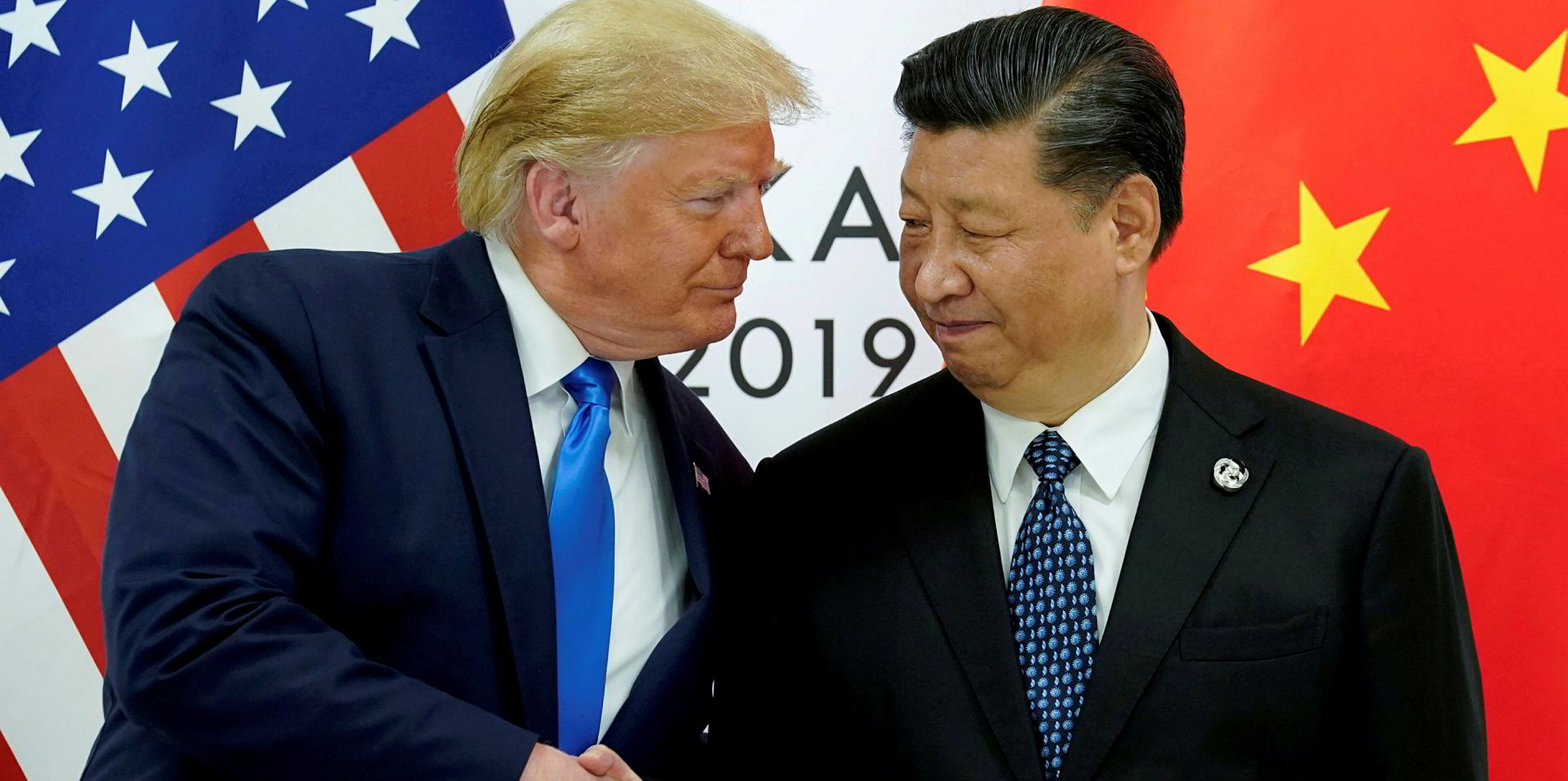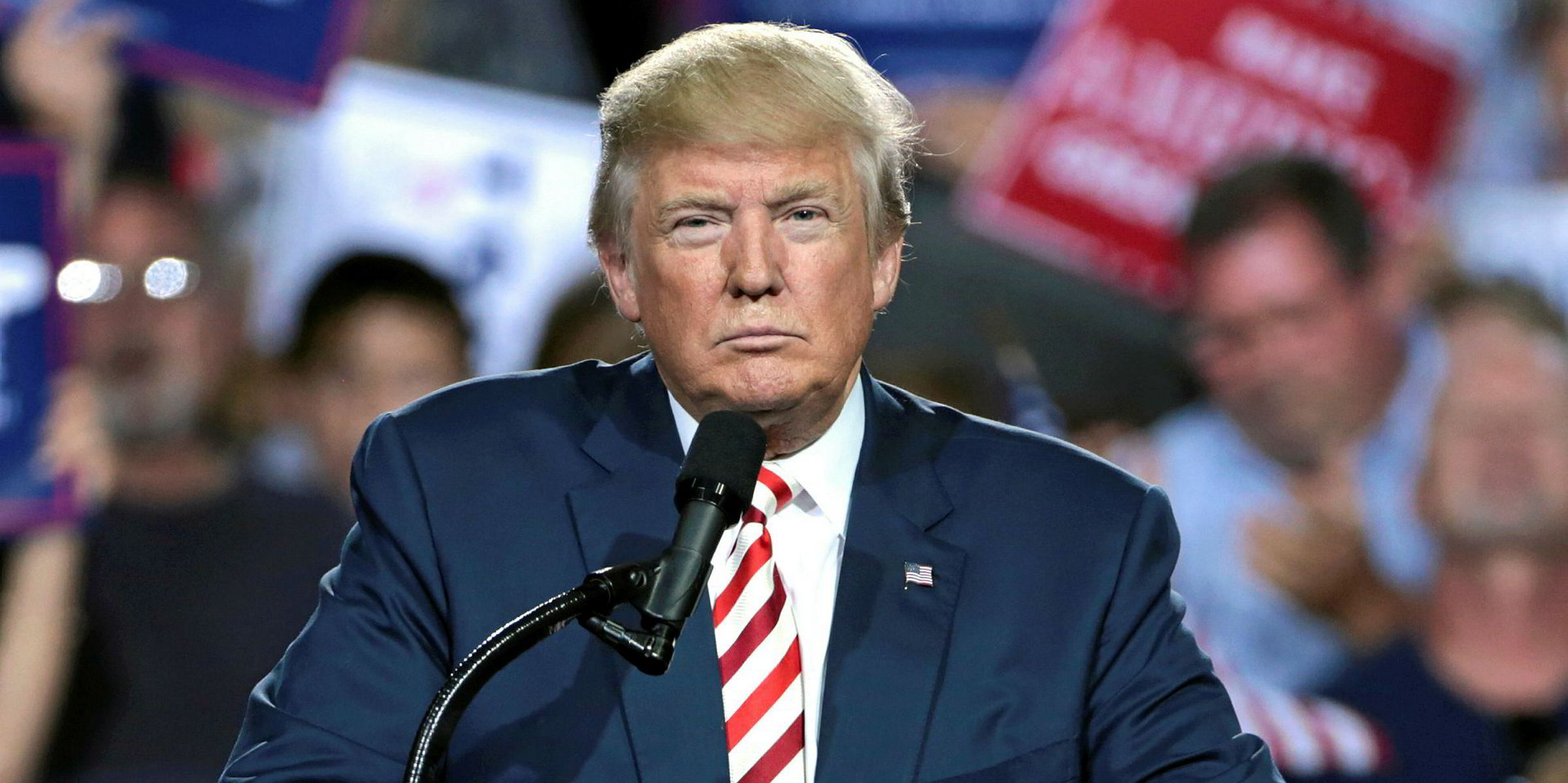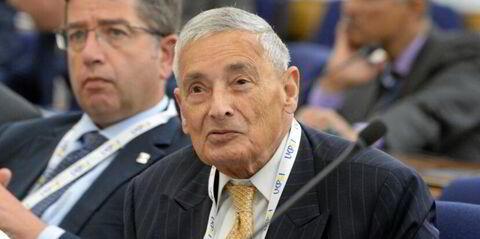Donald Trump was engaged in his trademark brinkmanship with China this week over whether to enact the next round of trade tariffs on 15 December.
As I write this column, the US president continues to warn that “something could happen” at the weekend.
Trump wants more concessions from his counterpart Xi Jinping before deciding whether to proceed with tougher action on a further $156bn-worth of Chinese laptops, clothes and other exports.
A speculative “phase-one” trade deal was agreed between the two sides in October but continued rows have prevented this from being signed off.
In return, Beijing wants some of the existing US tariffs imposed on $375bn-worth of Far East exports removed.
But the internal pressures so far seem to be more intense on China than on the US.
The latest official figures released on 6 December show the US economy added 266,000 jobs last month.
This is considerably higher than economists had expected and has left unemployment at its lowest levels since 1969.
The trade war might be hurting the US economy but it does not seem to be undermining its capacity to create new jobs.
China hurting
China, on the other hand, is definitely hurting. Exports to the US dived 23% in November at a time when the run-up to Christmas normally propels volumes upwards.
China’s overall economic growth rate hit a 30-year low in the third quarter of the year, leaving Xi keen to end the stand-off with Trump.
But not at any cost. Beijing has just ordered public institutions to remove foreign computer technology within three years.
China’s overall economic growth rate hit a 30-year low in the third quarter of the year, leaving Xi keen to end the stand-off with Trump
This will damage IT firms in the US, such as Dell, and mirrors US bans on its own companies doing business with Chinese telecoms groups, such as Huawei.
These protectionist moves increase national commercial resilience but undermine global trade, shipping and economic growth.
Bimco, the world’s largest shipowners association, has warned that faltering demand plus an influx of new container capacity will hit liner freight rates.
The decision by Opec members to press ahead with further oil production cuts will also damage the tanker market.
The World Trade Organization has just slashed its global growth targets for the current year from 2.6% to 1.2%. It has also reduced its forecast for next year from 3% to 2.7% in light of the current economic slowdown, which is partly caused by the stand-off between China and the US.
Not everyone is this gloomy. Goldman Sachs research economists, for instance, insist the international slowdown that began in early 2018 “is nearing an end”.
Goldman predicts global economic growth of 3.4% next year, while investment banking company UBS says 66% of its high net-worth investor clients see geopolitical events shaping financial markets more than business fundamentals in 2020.
Political tensions
Certainly there are also trade-based political tensions between the US and the European Union, plus Japan and South Korea. Trump is angry about the trade deficit the US runs with China and, to a smaller extent, with the EU.
Japan is angry with South Korea over the latter’s state financial support for its shipbuilding sector.
Japan is not happy with China either, because of the allegedly unfair competition provided by Beijing’s state-owned shipbuilders.
And then there is Brexit to add to the uncertainty and fear of another country becoming more nationalistic and protectionist.
British Prime Minister and Brexit enthusiast Boris Johnson is still on a collision course with the EU should the Conservative Party win this Thursday’s general election.
He has promised Britain will leave the EU with or without a trade deal next autumn.
Failure to conclude a trade deal with its biggest economic partner would spell big trouble for UK business and be deeply unhelpful for Europe and beyond.
And the trouble would come as Germany, the biggest economy inside the EU, is already struggling to avoid a recession.
Highly respected Washington think tank the Brookings Institution published a piece last week by one of its senior fellows, Eswar Prasad, which warned: “The world economy appears to be entering a phase of stagnation, reflecting weak and slowing growth in some major economies and essentially no growth or mild contraction in others.”
Resolving trade tensions, he added, would be the quickest and easiest way to boost global growth “in these perilous times”.
It's all eyes on Trump.





